- Home
- Brian Hodge
Whom the Gods Would Destroy Page 7
Whom the Gods Would Destroy Read online
Page 7
Our sainted Helen Lytner, they’d called her.
“There was something wrong with those people,” he said. “There’d be one show up every now and again, like, to check up on her. You know how you can pass a person on the street and you can just feel the hatred coming off them? Like they’re ready to blow? That’s what it was like with them. All the time. All the time. Only they were in control of it. They weren’t going to blow until they were good and ready.”
I knew the vibe he meant. People like that, in my experience, were always alone. The thought of them getting together…
“I remember this time one of them brought along a videotape to show her. Said they’d almost gotten one to take. I don’t know what he meant by that. I don’t think I was supposed to overhear it. I didn’t see the tape, either. I was laid up in the next room, kind of…” He looked at the can between his scrawny thighs. “So I didn’t see it when they played it. But I could hear it. And the sounds. The sounds that something on there was making.” He squeezed his eyes shut as if the pressure could force the memory away. “You ever hear a pig when slaughter time comes?”
“Not in person. But…yeah, probably.”
“Almost like that, only deeper, like the pig was huge, and with something close to words in it. And people around, trying to talk with it, urgent, like they knew they didn’t have much time. That’s what it sounded like.” He shook his head. “It didn’t last long.”
“And you don’t know what they were doing?”
“God, no. Not specifically. But people like that…they’ve got no love in them. Not for themselves, not for anybody else, not for nothing. Except maybe for the idea of something coming in to tear it all apart and start over, so they’ll finally have a place. Give ’em enough matches and they’d burn the world down. Just for the hope that something more to their liking might grow from the ashes.”
Our sainted Helen Lytner.
“All this,” I whispered to my father, “and you still left me with her.”
He nodded, as if fighting against that great weight. “I left you with her.” He said it with deep, honest regret. “But at the time, she seemed to care for you well enough. You were so small. I wasn’t fit to…” He let the thought trail off. “Truth is, at the time, I wasn’t sure you were even mine after all. I was afraid you might be another one of her hellspawn.”
Another thing I’d never considered.
I spent the rest of that brief visit looking closely at the face of the weakest man I’d ever known, forced into hoping that I would find myself in him, because the alternative was something I didn’t want to contemplate.
Better the devil you know, you know.
* * *
As with the drive down, we split the return trip in two. At the beginning of the night’s layover in a Motel 6 in Sacramento, with Ashleigh gone to round up some food for us, I sat with my laptop at the little round table by the window and continued this demoralizing excavation into the past. Amazing, how the only thing you need anymore to completely ruin your life is a reliable Wi-Fi connection.
Like baiting a fishing hook, you just string a few words together in a search engine, drop it in the ocean of data, and see what gets pulled out. Anything to do with unsolved killings in which someone had been found tied to a tree and burned—that was a good place to start.
While I may have been blind to the idea until now, it had never occurred to me that my mother might have done this more than once.
In truth, she may have done it at least seventeen times.
Nebraska. Kansas. Minnesota. Iowa. Indiana. Montana. Illinois. Missouri. Alabama. Vermont. Colorado. Oklahoma. There was at least one such incident in each of these states going back twenty-two years, and even if I didn’t always remember which towns, I knew that we had lived in almost half of them before I’d drifted away to another family.
Nearly everything came out of local news sources. It was a clear pattern, but if anybody had put this together on a broader scale, there was no evidence of it. Of course, not all of them may have been her doing. Two had intimations of being racially based attacks. Another was rumored to have been connected to a feud between rival methamphetamine makers. For most, though, there had been no apparent motive.
I drew a crude map of the U.S. on a pad of paper, then plotted out the locations in chronological order. It didn’t suggest anything, just looked like a bunch of random occurrences, although if I’d been able to recall when we’d lived where, and when we’d moved, an obvious correlation may have popped out.
Nevertheless, a pattern still began to suggest itself…
Not in the years that these killings had happened, but the dates within the years.
It was a subtle thing to notice. Most people, in fact, wouldn’t. Making it trickier to spot was that not all these burned bodies had been found right away—they were in rural locations, after all. It wasn’t a stretch to think that some victims may never have been found. For those whose charred remains hadn’t been discovered for weeks or months, there was usually a reference to when the man had disappeared.
They clustered. Most of them, anyway. The biggest group fell around the end of the second week in August. Others, just past mid-November. Another group clustered three weeks into April. I knew these dates.
The burnings coincided with meteor showers.
August brings the Perseids. November, the Leonids. April, the Lyrids.
None of these, frustratingly, seemed to match up with the robust autumn day that I recalled from what I’ve always regarded as my first memory, when my mother handcuffed me to the steering wheel.
But, on browsing through the dates again, there was an outlier: October 7, twenty years ago. When I was four. The Draconids. Which typically fly in the evening, rather than the post-midnight window when most meteor showers are at their peak. It fit. The Draconids are usually a dud for casual watchers, but on rare occasions it’s as if Draco the Dragon emerges from a long sleep and spews fire, hundreds of meteors per hour.
So I checked.
The autumn I was four was just such a year.
What did any of it mean? I really had no idea. Had I not witnessed what I had at Cameron’s hideaway, I would’ve thought our mother had only been obeying the commands dictated by whatever mental sickness had compelled her to kill. Instead, it was obvious that she’d adhered to a pattern of logic until she’d succeeded in creating something that beggared belief.
The immolations, though, as I saw it now, were incidental. They weren’t integral to the process of experimentation. They were simply how she chose to dispose of her failures. Give ’em enough matches and they’d burn the world down, my father had said, and maybe that was the key to it: She was rehearsing, a little at a time.
And she’d forced me to take my long-held assurance that the universe, while a chaotic place, was nevertheless subject to immutable laws, and balance this with a new appreciation for another quote by—him again—Arthur C. Clarke: “The universe is not only stranger than we imagine, it’s stranger than we can imagine.”
When Ashleigh came back from her food run, she found me sitting by the pool, alone, none of our fellow wayfarers in a swimming mood. I’d accumulated a handful of change along the trip and found a strange satisfaction in flipping it into the water. Every couple minutes another coin—a flash of silver or copper, a plop. It was a challenge to see how long I could follow each one as it sank, before losing sight of it. The near-worthless pennies cheated. Of course it was easier to see them.
When Ashleigh first walked up, she took off her sunglasses and squinted at me, as if removing them would explain everything.
“What are you doing that for?” she asked, still thwarted. “It’s not a wishing well.”
“I’m leaving someone a present,” I said. “The next kids to come along? It’ll be an adventure. Diving for sunken treasure.” I flipped in a quarter. “Maybe it’ll happen for one of them at a really impressionable time. Maybe it’ll set the course of their entir
e future.”
Better the sea than the sky.
“And maybe some beer-bellied dad will grab them all up instead,” she said.
Another nickel down. “Would he really be that shameless?”
“You’d be surprised.”
Ashleigh would know. Her entire livelihood was built on catering to the likes of unshameable men. The amount of evidence she must have witnessed by now was too dismal to contemplate.
“Are you wanting to eat out here?” She hoisted the paper bag, white, with a happy red and yellow pig on it. “I found barbeque. Sacramento’s best. They wouldn’t lie about a thing like that.”
Why had I suggested barbeque? What was I thinking?
She took a step closer, cuing in. “What’s wrong?”
“Did you bring any Ambien with you?”
“Yeah.” She dragged another poolside chair close to mine and sat down. “What is it? Tell me.”
And it just came out then, no planning, more like an involuntary hiccup than something I’d meant to say: “My mother was a serial killer.”
Ashleigh didn’t know what to say to that, but then who does? She sat in frozen poise as the words bored deep enough to register, then struck something that made her deflate. She reached over to touch my arm and eventually found her voice again. She told me that my mother was gone and couldn’t hurt anybody ever again. She told me that I wasn’t her. She told me that I wasn’t him, either, with a nod to the south. She told me I wasn’t my brother. Told me I’d had the good sense to get away at a remarkably young age, and that proved more than anything that I was myself, free of the taints and stains that anyone had tried to leave on me. She told me I was my own person, totally, nothing like them at all.
Right. With the stars as our witnesses.
Later that evening, with the little bit of food I’d picked at lying in my stomach like a sour acid ball, I went for a walk in the blocks around the motel. It was harder than it used to be, when I was a kid, to find a public phone, a pay phone. Everything goes extinct eventually. All I wanted to use my own phone for was to, one more time, check the news from Portland to see if anything strange had broken, and take this decision away from me.
What I’d learned from my father was the worst, most isolating, of all possible news. Whatever Cameron had led me to, whatever our mother had allowed herself to become, the Starry Road could never be allowed to find it. Just as it could never be allowed to find its way to them.
It could only be contained and dealt with by people that someone like me, a lowly civilian, had no access to. It would have to start with local authorities and proceed from there.
It would have to start with the last thing I wanted to do to anyone.
It would almost certainly have to start with a tragedy.
I need to report a large group of mutilated bodies. And be careful…I think whoever did it is still there.
So I dug out the last coins I hadn’t been able to bring myself to throw into the pool, then made the call to Portland.
God help me.
More than the Ambien could.
* * *
When I awoke the next morning, I lingered as long as I could on that threshold before everything becomes real again, when there’s still the hope it might have been a dream. Then I tripped through the portal and there was no coming back. I stared past Ashleigh’s shoulder at my phone on the nightstand, wondering how many casualties it would inform me I’d caused. I waited until not knowing grew worse than knowing, and reached for the truth.
Which was, apparently, that it was just another morning up in Portland.
After a few fruitless searches on my phone, I swung around to the end of the bed and turned on the TV to check the cable news channels. It was the same politics, Wall Street tickers, and celebrity trivialities that were there every morning. It wasn’t that I was expecting the truth of what I’d directed the police to, but rather, a plausibly frightening cover story to explain why a city block or more had been quarantined.
Yet there was no sign of anything of the sort.
Neither had it materialized by the time we’d had our showers and headed out to grab breakfast on the go.
Nor by our next stop for gas.
Not even by late morning, when we rolled across the border to trade California for Oregon.
I should’ve been glad, but while a part of me was relieved, another part didn’t trust this to be good news. It felt like the forced smile and empty promise in someone’s voice assuring you everything was fine, when all else about them told you nothing would ever be fine again.
“You look tense.” Ashleigh reached over to massage the back of my neck. “You want something for it?”
“Better not.”
“You’ll get past it, you know,” she said softly, the voice of experiences I’d probably never heard about and maybe never would. “It’s what we do. We have to. We get past our families because it’s the only way to keep them from winning. That’s the only thing that keeps them from killing us by remote control.”
It was rolling torture, this conversation. Because even when it looked like I was leveling with her, I really wasn’t. We were in two different time zones, past and future, and everything there was to dread still lay in front, not behind.
By late afternoon, as we rolled through Portland, the highway parallel to the Willamette, the itch had become a palpable sensation.
“I need to pull off and check something here,” I told Ashleigh.
I could see her weighing the added time and miles against how much longer her neighbor Rafael was going to be able to care for Isis. “Is it going to take long?”
“I hope not.”
I veered off at the Pearl District and followed the same route to its far edges along which Cameron had directed me, days ago. Back, past the blocks of rehabbing and renewal, to that little pocket of decay that still wore its age and sorrows. Every block farther I expected that this would be where it began, this was where we’d hit a dead end—uniforms and barricades and grim faces, the situation in hand even if nobody had figured out what they were dealing with.
Except nothing stopped us but traffic lights.
I knew it was the correct block when I found it—all the other shabby landmarks were the same—but still had to circle it twice, thinking this couldn’t be right, couldn’t be right. There was no small army, no siege, no one to protect passersby from their own ignorance.
There was no building anymore.
The address I’d sent them to was now an empty lot.
I parked at the mouth of the alley and got out, Ashleigh staring bemused at my back as I paced slowly up to the fence. That much, at least, was still there, wood and chain link and a crown of razor wire, keeping people away from…nothing. Just an inordinate amount of strange dust, like silica and cellulose, that lifted and swirled in the breezes and coated everything else around.
I wandered farther down the alley, past dumpsters and doorways, until I came to one of the addicts who had been here the other day. Or maybe it was a new addict. After a point it can be so hard to tell.
“The building that was behind that fence.” I pointed. “You know the one I mean?”
The junkie nodded, all yellowed skin and fingernails as black as bruises. “What about it?”
“What happened to it?”
“She folded it up and took it with her.”
The way he said this made it sound as if nothing on Earth could have made him sadder.
* * *
When I asked Devangana Singri where she’d like to go for a quick bite to eat—a payoff for the privilege of picking her brain—I thought she might choose someplace close to campus, close to home. Instead, she wanted to go for chili at Slim’s Last Chance, way down in SoDo. Because she’d always heard good things. Which soundly defeated the part about quick.
Slim’s came off a lot more biker roadhouse than student hangout, but that wasn’t necessarily a bad thing. You half expected to see the ghost of Patrick
Swayze tossing out a rowdy drunk while you walked up toward the neon arrow. Although when Devangana played it safe with the white bean turkey chili, I had to ask her why she’d even bothered.
“It’s like you never heard of curry,” I said. I’d stuck with the Texas Red.
She gave me a look of scorn, as if I didn’t know how lucky I was. “It’s like you’ve never heard of acid reflux.”
As undergrads we’d been lab partners, but now she had her sights set on a position with NASA’s Near-Earth Object Program. I’d rarely ever heard anyone actually sound excited about going to Pasadena, but then these were the people who spent their shifts on the lookout for global devastation, scanning the heavens to find and track the asteroids and comets that wandered near the Earth and were big enough to pose a threat. Last time I’d checked, they were juggling 1376 asteroids alone, all tagged Potentially Hazardous.
“What are the strangest things you’ve ever heard about meteors and meteor showers?” I asked.
She tipped back her head, going into random-access mode. Devangana had flawless skin the color of caramel and coal black hair at constant war with the Pacific Northwest’s humidity.
“You mean something like the Geminids?” She sounded flattered that I’d asked, but terribly uncertain as to what I might be after.
“I don’t know,” I said. “What about the Geminids?”
“They just kind of started showing up every December for no apparent reason in 1862. It took another hundred and twenty years before we even figured out where they were coming from.”
This was new to me. You can’t know everything, although I’ve met professors who would insist otherwise.
I hadn’t stopped her, so Devangana went on. “They come from an object called 3200 Phaethon. But it’s not a comet. Or if it is, it’s not like any other comet anybody’s ever seen. It doesn’t have a tail. No tail, no meteorites. That’s the way it’s supposed to work, right? But for reasons nobody’s figured out yet, 3200 Phaethon throws out a debris stream.” She nodded, as if seeking agreement. “Is that strange enough? That’s really strange to me.”

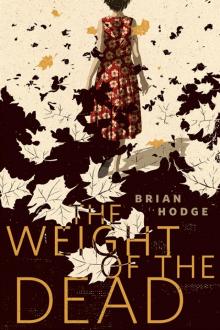 The Weight of the Dead
The Weight of the Dead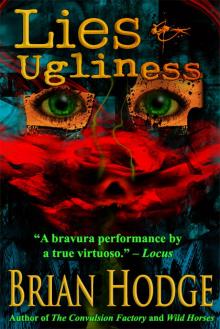 Lies & Ugliness
Lies & Ugliness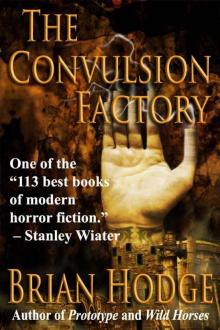 The Convulsion Factory
The Convulsion Factory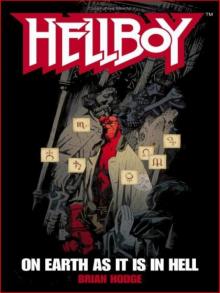 Hellboy: On Earth as It Is in Hell
Hellboy: On Earth as It Is in Hell Whom the Gods Would Destroy
Whom the Gods Would Destroy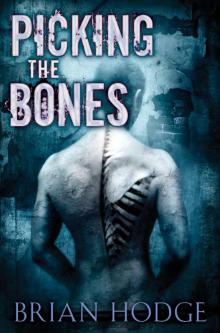 Picking the Bones
Picking the Bones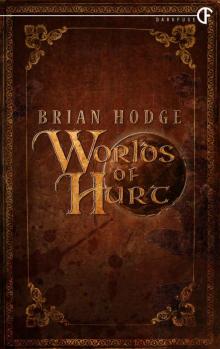 Worlds of Hurt
Worlds of Hurt Oasis
Oasis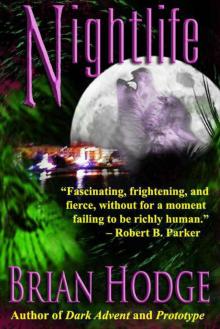 Nightlife
Nightlife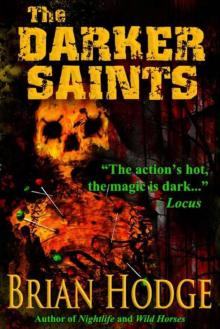 The Darker Saints
The Darker Saints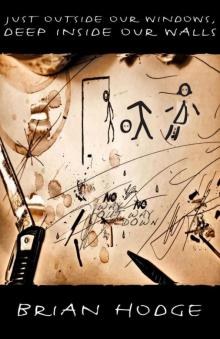 Just Outside Our Windows, Deep Inside Our Walls
Just Outside Our Windows, Deep Inside Our Walls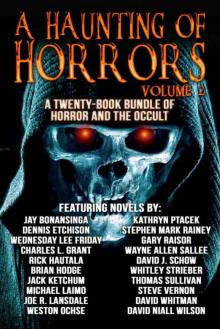 A Haunting of Horrors, Volume 2: A Twenty-Book eBook Bundle of Horror and the Occult
A Haunting of Horrors, Volume 2: A Twenty-Book eBook Bundle of Horror and the Occult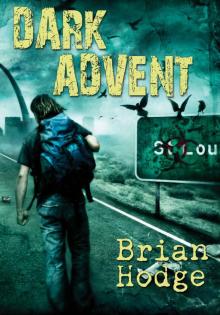 Dark Advent
Dark Advent Mad Dogs
Mad Dogs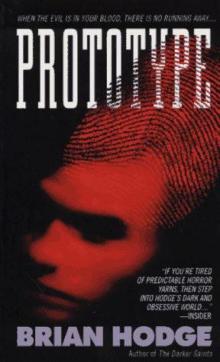 Prototype
Prototype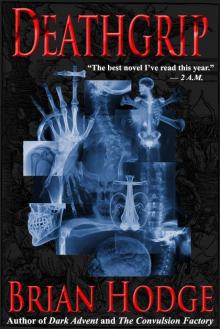 Deathgrip
Deathgrip Falling Idols
Falling Idols